
If you or your elderly loved one is exploring cancer treatment, it’s important to know that cancer treatments can be curative or palliative.
Just like palliative care, palliative chemotherapy is used to provide symptom relief, and improve the quality of life of cancer patients, but not necessarily cure it.
We have put together this blog post leaning on resources from authority organizations to help you and your elderly loved one understand palliative chemotherapy, including the type of cancer it is used for, likely side effects, and questions you should ask before starting palliative chemo.
What is Palliative Chemotherapy?
Chemotherapy is used to treat cancer by targeting and destroying fast-growing cells in the body. Cancer cells grow faster than healthy cells.
Chemotherapy is often recommended in 2 situations:
- To cure the cancer (target and kill the cells) and prevent recurrence. In this case, it’s called curative chemotherapy. Leukemia, lymphomas, and testicular cancer are types of cancers that can be treated and cured with chemotherapy.
- To shrink cancer cells, or tumors, reduce symptoms, and improve quality of life. In this case, cancer has spread from the site of origin to other parts of the body (metastatic cancers). Chemotherapy cannot cure it but may help shrink the cells and prevent further spread. In such cases, chemotherapy is termed palliative chemotherapy.
In essence, palliative chemotherapy is given to patients to help ease cancer symptoms, improve their quality of life, and possibly prolong life.
Palliative chemo does not intend to cure cancer. However, it can be given alongside curative chemotherapy, other treatment options, and at any time during cancer.
Palliative chemotherapy can be given orally, intravenously, or by injections.
What are the Goals of Palliative Chemo?
You must understand the purpose of a specific treatment, so you don’t expect different results that are not in line with the treatment.
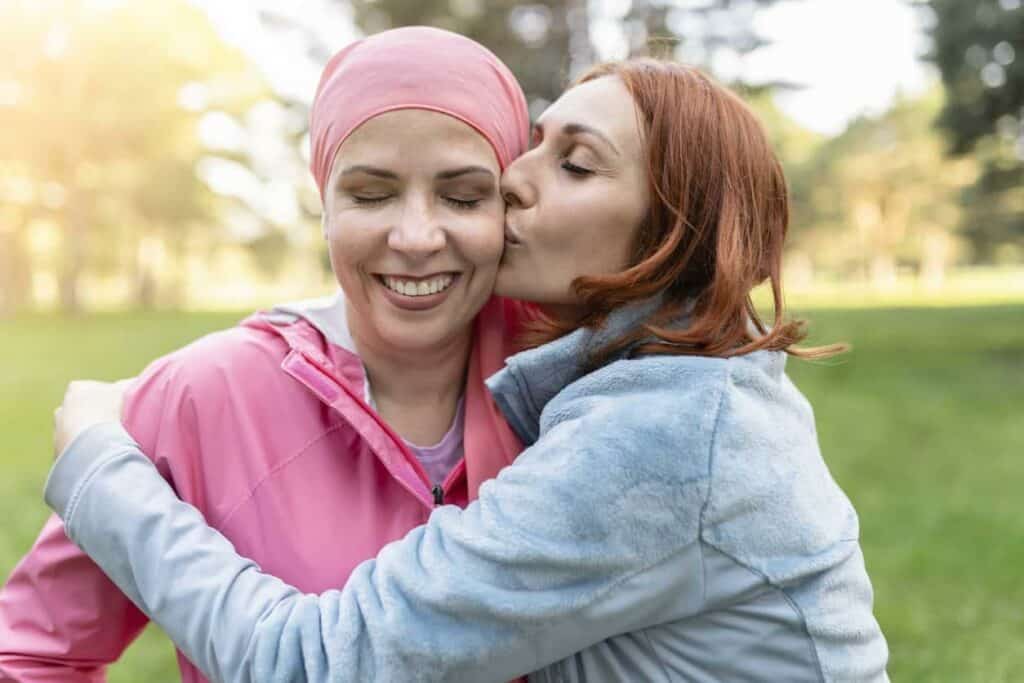
In this regard, the goal of palliative therapy is not to cure cancer, but to:
Relieve symptoms
As a result of cancer spreading to other parts of the body, symptoms such as pain or shortness of breath can develop. Pain can be caused by the tumor pushing on various structures in the body, while shortness of breath may be caused by the tumor blocking the airways.
By reducing the size, or stopping the growth of tumors, palliative therapy can help you or your loved one get relief.
Slow down cancer progression
It may be possible for palliative chemo to slow down the progression of cancer by shrinking the tumors. This can lead to a prolonged life expectancy. Talk to your doctor about the results to expect.
Improve the quality of life
Living with cancer symptoms can affect the quality of life of an individual. Pain, shortness of breath, and other symptoms may make everyday activities challenging. By alleviating these symptoms, palliative chemo can help your loved one lead a better quality of life.
Pronglong Life
Although not curative, palliative chemo may slow down the progression of the disease, potentially extending a patient’s life or providing a period of improved health.
Make other treatments more effective
Palliative chemotherapy might be used to make a patient more responsive to other treatments, such as radiation or surgery, improving the overall effectiveness of the treatment plan.
However, if you’re still hoping for curative treatment, and your physician suggests palliative chemo, have a conversation with them. Find it if there are possible treatment options you or your elderly loved one can explore while receiving palliative chemo.
When is it Given to a Cancer Patient?
Palliative chemo is considered for cancer patients in situations when the treatment goal changes from curative to managing symptoms and improving the quality of life.
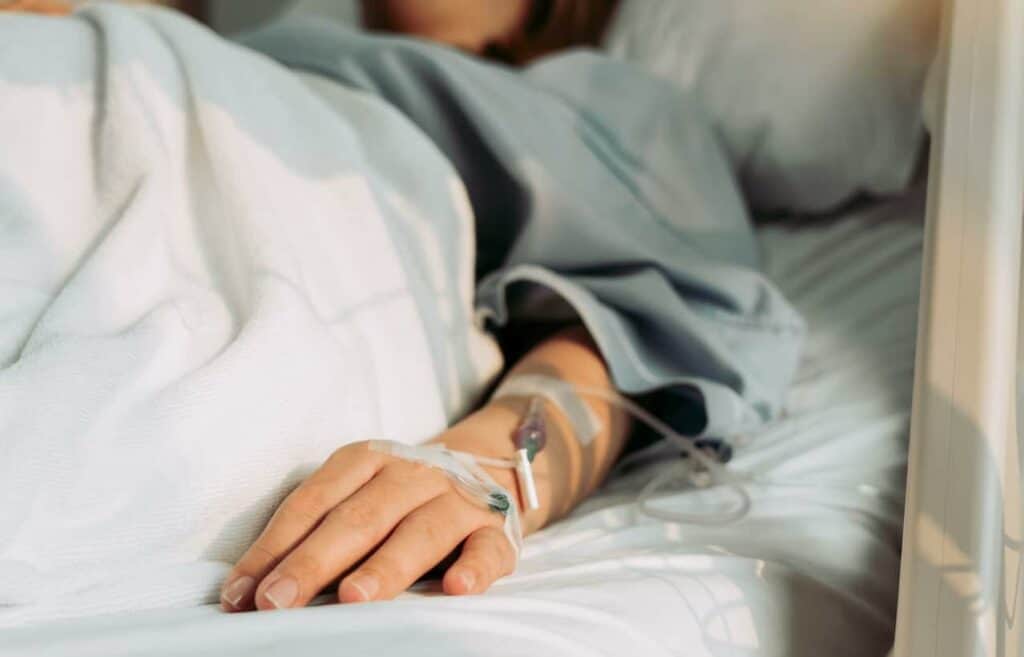
It can be recommended in the following situations.
- Advanced Cancer: This is when cancer has progressed to the advanced stage, and curative treatment is no longer possible. Palliative chemo can help manage symptoms and slow down the disease progression.
- Symptom Management: If the cancer is causing significant symptoms like pain, obstruction, or discomfort, palliative chemo may be used to alleviate these symptoms.
- Improving the Quality of Life: When the patient chooses to stop cancer treatment and wants to focus on comfort care instead, palliative chemo might be recommended to improve the quality of life.
- When a Patient’s Overall Health Allows: Palliative chemotherapy may be considered if a patient’s overall health and condition can tolerate the treatment without significantly compromising their well-being.
What Types Of Cancer Is Palliative Chemo Used For?
Palliative chemo can be used for different types of cancer. However, the emphasis is more on the stage of cancer than the type.
Palliative chemotherapy is proven to be effective for cancer types such as pancreatic cancer, breast cancer, and non-small cell lung cancer.
How Long Does Palliative Chemo Last?
The duration of palliative chemotherapy varies widely and depends on several factors, including the type and stage of cancer, the patient’s overall health, their response to treatment, and individual treatment plans. Generally, palliative chemotherapy may be administered over a few weeks to several months.
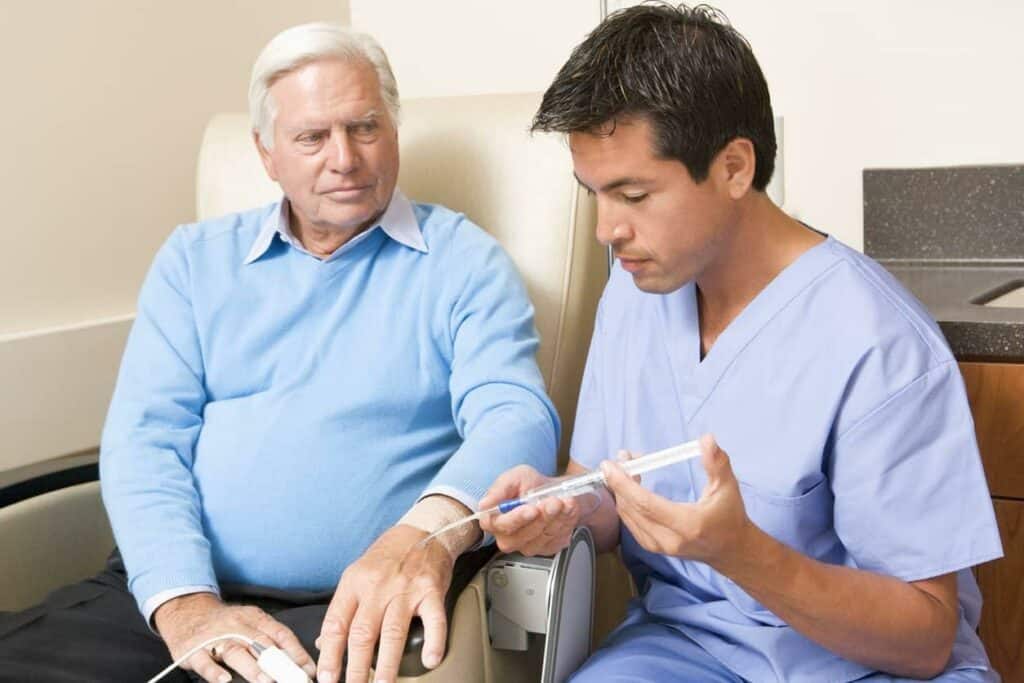
It’s standard practice to administer chemo for one to two cycles of treatment before looking at the cancer’s response to it. A cycle can range from three to four weeks.
It’s important to note that there isn’t a fixed or standard duration for palliative chemotherapy because it’s tailored to the patient’s specific needs and the goals of care. Treatment plans are often assessed and adjusted based on how the patient responds to the chemotherapy, their tolerance for the treatment, and changes in their overall health condition.
If your cancer or your loved one’s cancer is responding to the chemo, your doctor may recommend it until your cancer stops growing, or you develop high-risk side effects from the treatment.
Are there side effects?
Side effects can differ from patient to patient depending on the chemotherapy drug used and the type of cancer. Talk to your doctor about the possible side effects you should expect.
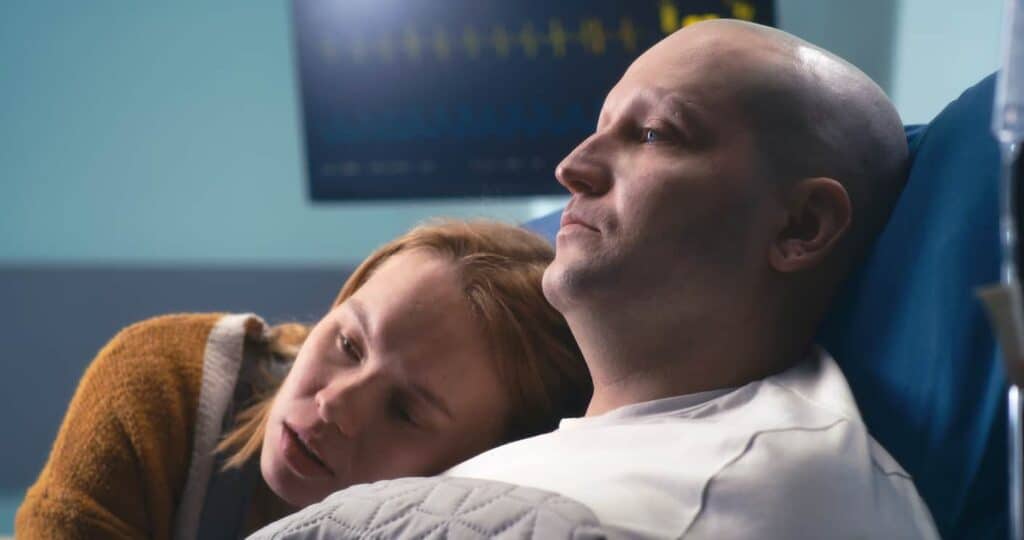
Typically, side effects can include:
- Fatigue
- Hair loss
- Mouth sores
- Constipation
- Diarrhea
- Easy bruising
- Decrease in blood count
- Nausea
- Problems with concentration
These side effects can impact the quality of a patient’s life. Knowing what to expect before treatment begins, can help you prepare mentally for it, and discuss with your doctor ways to
reduce them.
Does Palliative Chemo Really Improve Quality of Life? What Studies Say
Palliative chemotherapy aims to enhance the quality of life for cancer patients by managing symptoms and potentially extending life expectancy.
Several studies have explored its impact on patients’ well-being, and while results vary based on individual cases, some general findings emerge.
Symptom Management
Palliative chemo has been shown to improve pain, physical function, and life expectancy for pancreatic cancer patients. It was also seen to slow down appetite loss and prevent symptoms such as constipation and shortness of breath.
Palliative chemo can improve fatigue and enhance the overall quality of life for individuals with breast cancer.
Additionally, palliative chemo can alleviate some symptoms associated with this non-small cell lung cancer such as shortness of breath, cough, and pain.
Functional Improvement
In some cases, palliative chemotherapy has been associated with improvements in physical functioning, allowing patients to engage more in daily activities and maintain a better quality of life.
Psychosocial Benefits
Feeling better physically often positively impacts patients’ emotional well-being. A study showed that palliative chemotherapy improved patient’s emotional function and global quality of life.
However, this aspect can vary widely among individuals, and some may experience increased anxiety or distress due to treatment.
Better Quality of Life
Research suggests that while palliative chemotherapy may not always significantly prolong life, it can positively impact certain aspects of health-related quality of life, such as symptom control and functional status.

In contrast, some other findings portray some not-so-good associations with palliative chemo.
For instance, a study reported that patients involved in palliative chemotherapy were less active than those in healthy controls. Hence, some level of physical activity may be encouraged for those undergoing palliative chemo as resistance and aerobic exercise were shown to enhance the physical condition of gastrointestinal cancer patients during palliative chemotherapy.
Additionally, a study uncovers a discrepancy between the type of care cancer patients want, and what they receive.
The study asserts that cancer patients who get chemotherapy near the end of their lives are less likely to die where they want. They’re also more likely to have aggressive medical treatments like CPR or mechanical ventilation, compared to those who didn’t have this treatment.
They discovered that patients who received palliative chemo were less likely to talk about the kind of care they wanted to receive, or even admit they were terminally ill. They were also less likely to talk about end-of-life wishes (e.g. to complete Do-Not-Resuscitate orders).
Additionally, 54% of the patients in the study were transferred to hospice late, and may not have benefited from that level of comfort care before their end of life.
Before moving forward with palliative chemo, consider the pros and cons, and know what to expect.
Pros And Cons to Consider Before Choosing Palliative Chemo
Deciding on palliative chemotherapy involves weighing its potential benefits against its drawbacks. Here are some pros and cons to consider:
| Pros | Cons |
|---|---|
|
|
|
|
|
|
|
|
|
|
Questions to Ask Your Oncologist
Your oncologist or your elderly loved one’s physician may be able to shed more light on the pros and cons of palliative chemotherapy for your specific case.

Here are some questions to ask to help you decide if palliative chemo is the right choice.
- What is the response rate of palliative chemo on your cancer? Response rate is the likelihood that your cancer will improve from treatment. A 40% response rate indicates that if 100 people like you undergo chemo, 40% of them will have their tumor shrunk by half or more, or whose cancer didn’t grow
- What is the medium duration of response? This indicates how long the cancer responds to treatment before it starts growing again. For most cancers, this can range anywhere from 3-12 months. The higher the medium duration of response, the more likely a prolonged life expectancy.
- Will it relieve my symptoms?
- Will it improve my quality of life
- What side effects can I expect?
- How long do I continue treatment?
- What is the cost? Will I have to travel for treatment?
- Will palliative chemo disqualify me from hospice when the time comes?
- Can I continue with my normal lifestyle during treatment?
- If my cancer fails to respond to treatment, are there other available treatment options?
Do not be afraid to ask these types of questions. You can also seek out a second opinion if the answers you received are not satisfactory.
How Do I Pay for Palliative Chemo
Since palliative chemo falls under palliative care, the following ways may help cover the cost of palliative care. Keep in mind that you may have to pay out-of-pocket, if not covered.
- Medicare
- Medicaid
- Long-term care insurance providers
- Financial assistance programs from nonprofit organizations or hospitals
- Clinical Trials and Research Studies: Participation in clinical trials or research studies might provide access to experimental treatments at reduced or no cost.
For private or public health insurance options, be sure to contact the organization to determine the extent of coverage because, for example, Medicare only covers some specific palliative care costs like drugs or medical equipment.
Other FAQs About Palliative Chemo
Is palliative chemotherapy worth it?
Palliative chemotherapy aims to improve the quality of life by managing symptoms and prolonging life when a cure isn’t possible. Its worth depends on your goals, preferences, and the stage of cancer. While it may not cure cancer, it can alleviate symptoms and enhance the well-being of many patients.
What happens after palliative chemo?
After completing palliative chemotherapy, you can continue with follow-up care, including monitoring for symptoms, managing side effects, and potentially exploring other palliative treatments. Discussions about future treatment options, supportive care, or hospice care may also occur depending on your health condition.
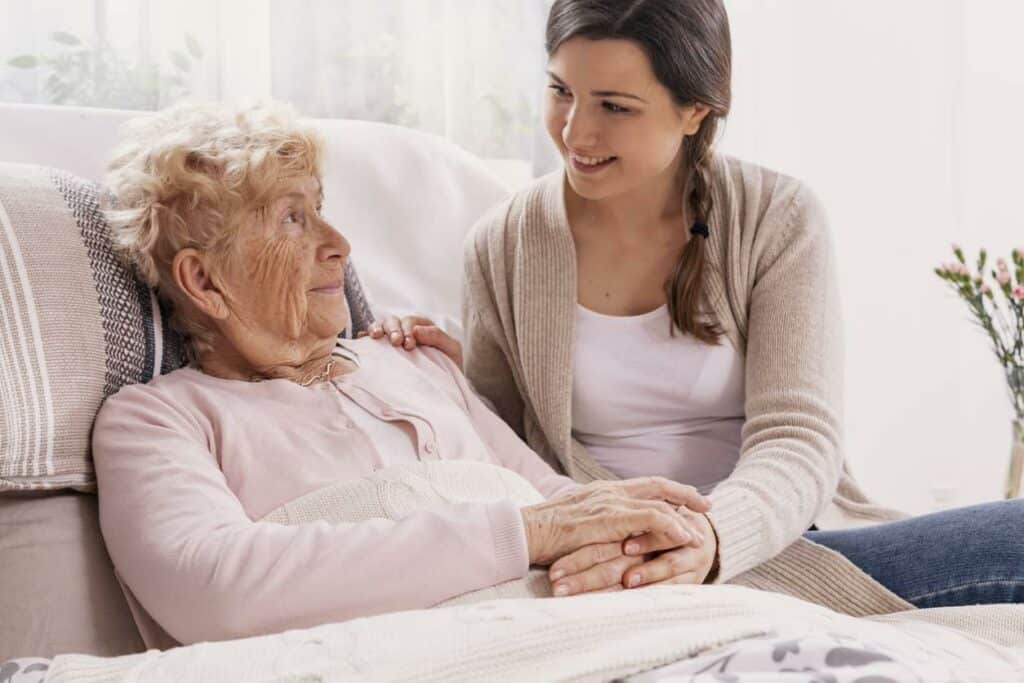
What is the life expectancy with palliative chemo?
Life expectancy with palliative chemotherapy varies significantly based on various factors such as the type and stage of cancer, overall health, response to treatment, and individual circumstances. The goal is often to improve quality of life and potentially extend survival, but specific life expectancy is challenging to predict.
What if I decide to stop cancer treatment?
Deciding to stop cancer treatment is a personal choice and can be made at any stage of the disease. You might choose to discontinue treatment due to side effects, ineffectiveness, or preferences, or to pursue other forms of care, such as palliative or hospice care, focusing on comfort and quality of life.
Takeaway
Palliative chemo can be an important part of your palliative care plan or that of your elderly loved one. It’s important to ask the right questions and weigh the pros and cons with your physician before beginning palliative chemo.
While receiving chemotherapy, your beloved senior may require an extra pair of hands to ensure they continue to live comfortably. They may need help with personal chores, transportation to and from doctor’s appointments, running errands, meal preparation, and companionship.
Amy’s Eden can be a trusted ally during this time. Our trained and vetted caregivers will provide compassionate care to ensure your loved one goes through their treatment process without diminishing their quality of life.
Contact us today to learn more about our palliative care options, and how we can help your elderly loved one lead a better quality of life.
Resources
https://www.healthline.com/health/cancer/palliative-chemotherapy#when-its-used
https://bmcpalliatcare.biomedcentral.com/articles/10.1186/s12904-016-0109-4
https://www.verywellhealth.com/palliative-chemotherapy-goals-and-questions-2249351
https://www.medicalnewstoday.com/articles/273526
https://onco.com/blog/what-is-palliative-chemotherapy-why-is-it-necessary/
https://getpalliativecare.org/what-is-palliative-chemotherapy




